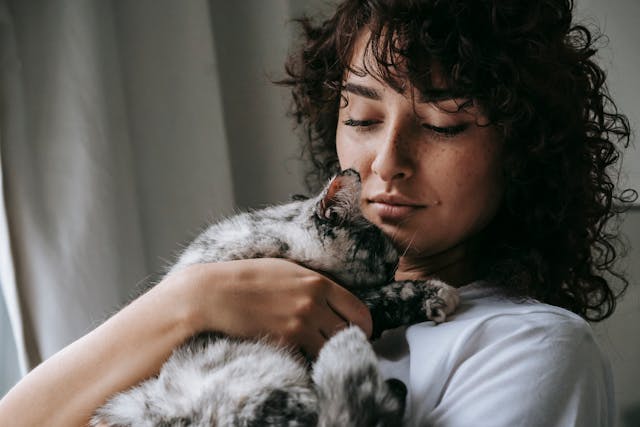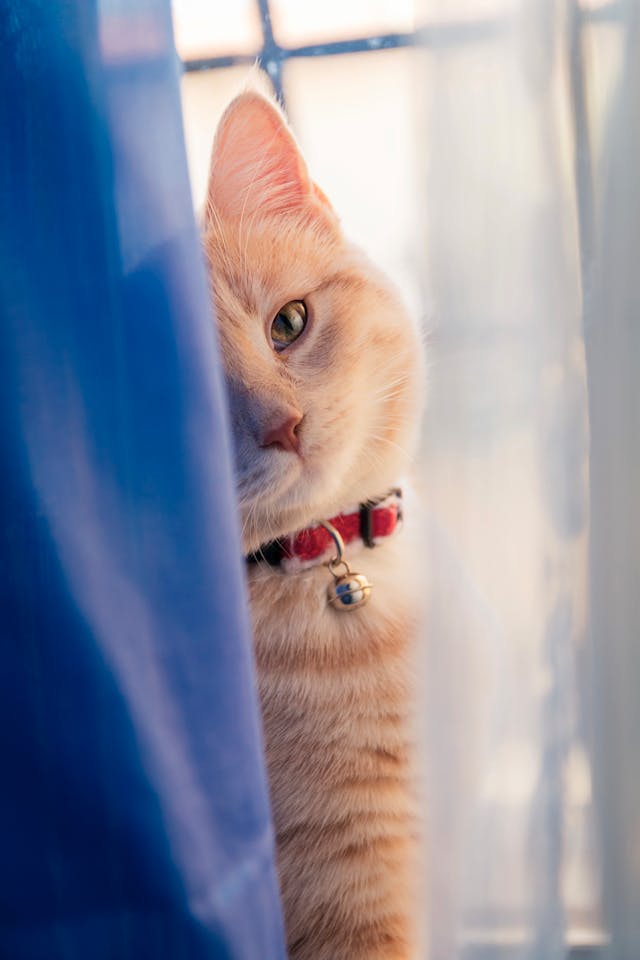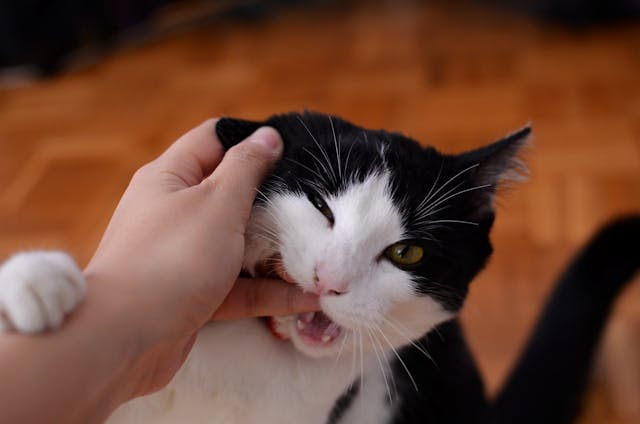Interesting animals, cats have unusual habits that frequently baffle their owners. Among these actions, licking by a cat is one of the most fascinating ones. What is it, a grooming impulse, a symbol of love, or something else entirely? We’ll go into the many reasons cats lick their owners and the ramifications of this activity in this in-depth blog post. Gaining insight into what your cat is attempting to say can improve your relationship and guarantee a long and happy one with your furry companion.
Highlights
Affection and Bonding: Licking is a form of expressing love and forming social bonds.
Grooming Instinct: How licking relates to a cat’s natural grooming behaviour.
Marking Territory: The role of scent marking in cat behaviour.
Seeking Attention: When licking is a call for interaction or play.
Stress and Anxiety: Licking as a self-soothing mechanism.
Health Issues: When excessive licking might indicate underlying medical problems.
Reciprocating Behavior: How humans can positively respond to their cat’s licking.
Why Does Your Cat Lick You?
Bonding and Affection
Your cat may lick you out of affection most of the time. Cats bond by licking with other cats and, consequently, with people. This action helps to provide a feeling of stability and comfort, much as mother cats groom their babies. Your cat’s licking of you is frequently their way of communicating, “I trust you and you are part of my family.”
Cats in the wild frequently groom one another socially, or allogroom. It fortifies the social ties inside a group. Your cat reinforces your relationship and indicates that it considers you to be a
member of their group when it licks you.
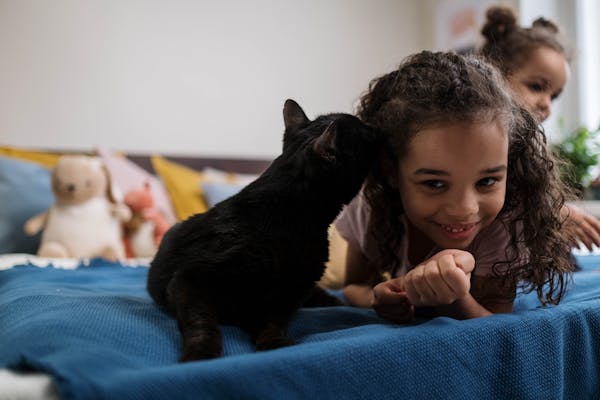
Natural Grooming Scent
Cats are renowned for their painstaking grooming routines. To maintain their fur free of parasites, they lick themselves for the most of the day. Sometimes this inclination to grooming also applies to their human friends. Should your cat lick you, it may attempt to groom you like another cat. In cats who consider their owners to be members of their family, this behaviour is more typical.
Territory Marking
The tongues of cats are among the bodily parts with smell glands. A cat licking you marks you with its fragrance in addition to expressing affection. Cats use this scent-marking habit as a territorial claimant. Your cat basically declares, “You are mine,” by licking you. As it helps them reestablish their scent on you, cats that lick their owners after petting sessions make this especially clear.
Seeking Attention
A cat will lick its owner occasionally to gain attention. Particularly prevalent in cats that have discovered that licking elicits a reaction from their human—whether it be through playing, chatting, or petting. Your cat is looking for interaction if it licks you and then looks at you expectantly. Reacting well to this conduct can enable you two grow closer and get your cat the attention it so much needs.
Stress and worry
Cats can also self-soothe by licking. A cat may lick itself or its human to ease stress or anxiety. This is akin to the way worried people often bite their nails. It may be an indication that your cat is attempting to manage its nervousness if you see that it licks you more often in tough circumstances. Reducing this conduct can be achieved by creating a secure and reassuring atmosphere.
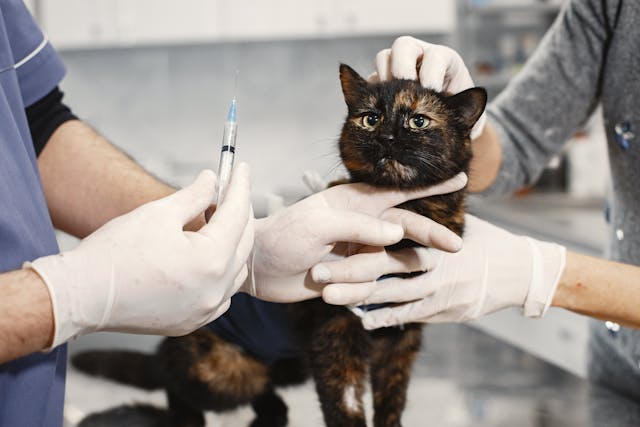
Medical Concerns
Although licking is often benign, excessive licking can occasionally point to underlying medical problems. Cats suffering from allergies or skin problems, for example, could lick their owners more often out of discomfort. Assume your cat starts to lick excessively or suddenly. To rule out any medical issues in such situation, seeing a veterinarian is crucial. A cat may lick more than normal if they have dermatitis, parasites, or even teeth problems.
Mutually Exclusive Behaviour
It will enable you to react in ways that strengthen your relationship with your cat if you know why it licks. You can improve your bond with your cat if it licks you to express affection; return the favour with sweet words or petting. It could help to play or engage with them if they are looking for attention. Being aware of the background of your cat’s licking behaviour enables you to react suitably and make sure your cat feels appreciated.
Deep Examination of Feline Licking Behaviour
A Closer Look at Affection and Bonding
Cats’ social structure is firmly based in the function of licking in bonding. From birth, kittens’ moms lick them to promote digestion and circulation in addition to cleaning. This early life event prepares the ground for licking as a consoling and bringing people together pastime. Your cat is probably using these early encounters to treat you like family when they lick you.
Cats that lick can experience pleasure and lessen stress because endorphins are released during the process. This may help to explain why, when licking their humans, cats frequently purr and seem happy. Your cat is showing love and feeling good when it acts in this way.
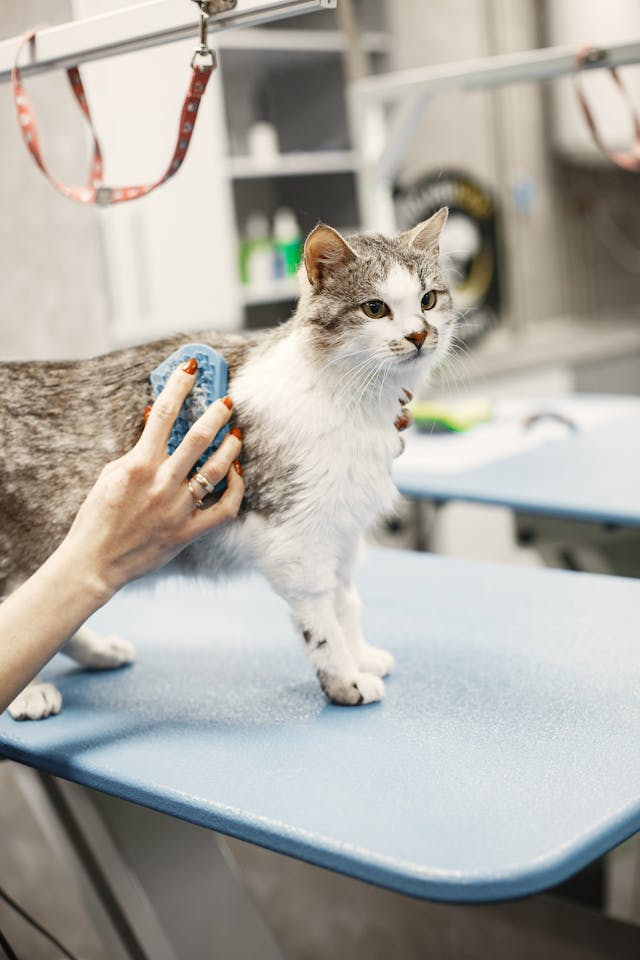
Beyond Cleanliness: Grooming Instinct
Grooming cats meticulously is well-known, and it’s necessary to keep them healthy and hygienic. Dirt, loose fur, and parasites are all removed from cats’ coats when they lick themselves. Because of their deep-rooted grooming habits, cats with close relationships to their owners may also groom their human friends.
As with themselves or another cat, your cat may attempt to keep you clean and groomed when they lick you. Cats that are close to their owners and view them as members of their social group may exhibit this behaviour especially prominently. That indicates great care and trust.
Scent Marking Territory
Cats’ tongues, paws, and faces contain smell glands. Pheromones made by these glands help cats interact with one another and mark their territory. A cat’s licking of you marks you as part of its territory by leaving its scent on you. In multicat homes, where scent marking helps create social hierarchies and lessen conflicts, this behaviour is more typical.
You are effectively being claimed by your cat by their licking. For cats, this can be comforting behaviour that strengthens their feeling of security and community. Appreciating this part of licking will enable you to better understand how deeply bonded your cat is to you.

The Cat Is Calling for Attention
Though their independence is well-known, cats often want company and attention from their owners. Cats can initiate touch and seek attention by licking. Your cat is clearly requesting your attention if they lick you and then look at you expectantly. Playing, talking, or caressing them positively can help to promote this behaviour.
It’s crucial to see when your cat is trying to get your attention and to react appropriately. Ignoring these clues can cause your cat to become frustrated and stressed. Recognising their attempts to communicate with you will improve your relationship and guarantee a pleased pet.
Stress and Anxiety: Coping with Licking
Cats may use licking as a self-soothing technique, especially under trying circumstances. A worried or stressed-out cat could lick its owners or itself to decompress. Endorphins released by this action can assist to lower anxiety and promote general wellbeing.
Say you discover that when you’re stressed, your cat licks you more often. In such situation, it becomes imperative to offer a secure and reassuring atmosphere. This might be giving your cat a calm, safe area, lots of toys and enrichment activities, and a regular schedule. This tendency can be lessened and your cat’s general health can be enhanced by identifying and treating the root causes of stress.

Health Concerns: Knowing When to Get Help
Although licking is typically a natural and healthy habit, overdoing it can occasionally point to underlying health problems. Owing to discomfort or agony, cats with allergies, skin disorders, or other medical issues may lick themselves or their owners more often. Say your cat starts licking excessively or suddenly. To rule out any health issues in such situation, seeing a veterinarian is crucial.
Cats who have dermatitis, parasites, or dental problems may lick more than normal. Your cat will feel less uncomfortable and future problems will be avoided with early diagnosis and treatment of these problems. Regular veterinarian examinations and behaviour monitoring of your cat can help to guarantee their health and welfare.
Mutual Receptivity: Developing the Human-Cat Bond
It will enable you to react in ways that strengthen your relationship with your cat if you know why it licks. If your cat licks you out of affection, you can improve your bond by giving them a little caressing or kind words in return. Take your time, if they are asking for it.
Playing or chatting to them might be good. Knowing the background of your cat’s licking activity enables you to react suitably and make sure your cat feels appreciated and understood. This can guarantee a content and peaceful relationship between you and your cat by helping to create a strong and enduring friendship.
Conclusion
There are several different interpretations for the complex behaviour of your cat licking you. Licting is essential to feline communication for everything from bonding and affection to claiming territory and attracting attention. Your cat’s demands and feelings can be learned a great deal by observing the situation and frequency of their licking.
Your bond with your cat is improved and their happiness and well-being are guaranteed when you recognise and address this tendency. Remember that your cat is trying to communicate with you when they lick you, and treasure the unique relationship you have. Understanding and responding to your cat’s licking behaviour will help you to provide a caring and encouraging atmosphere that promotes your cat’s wellbeing.

